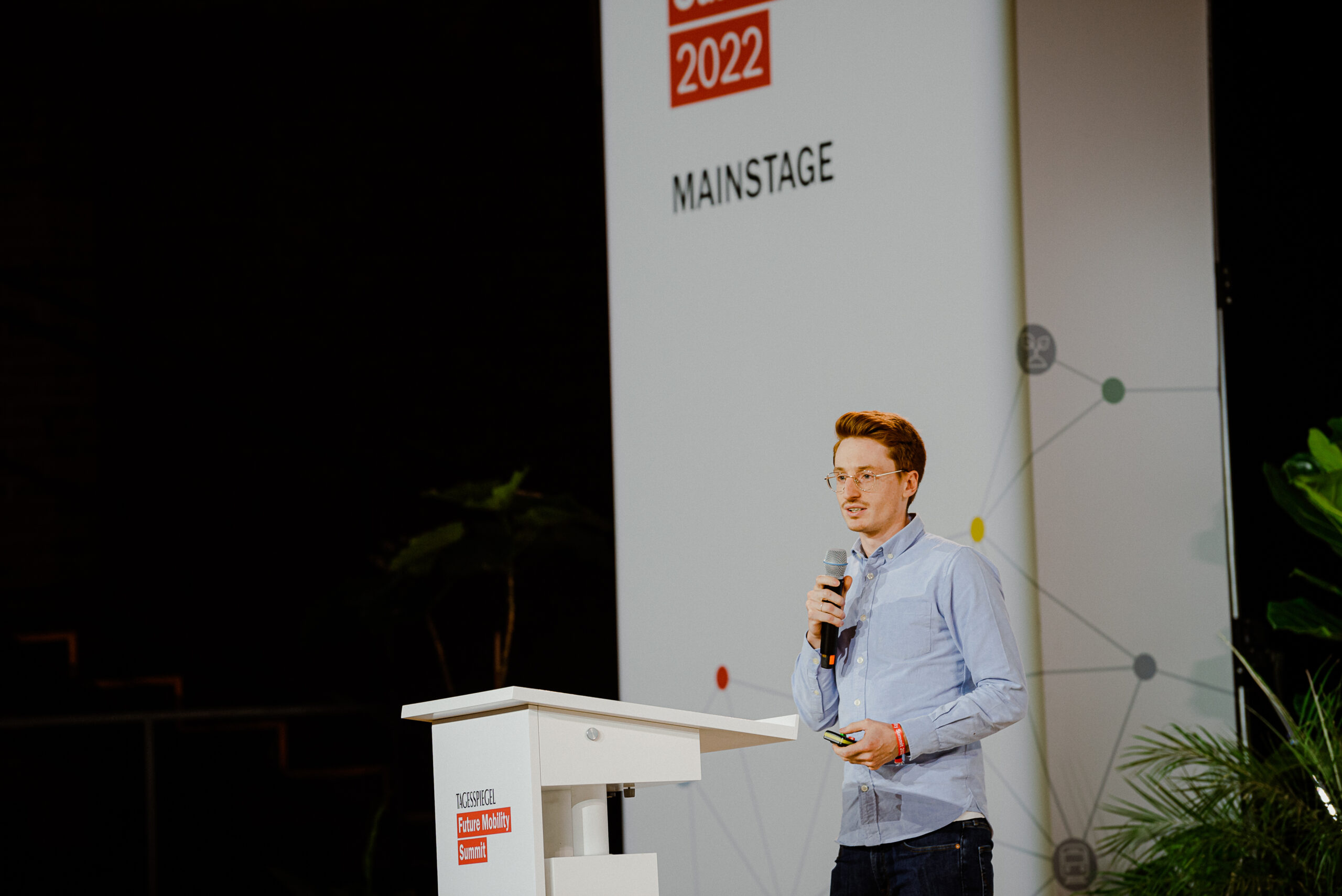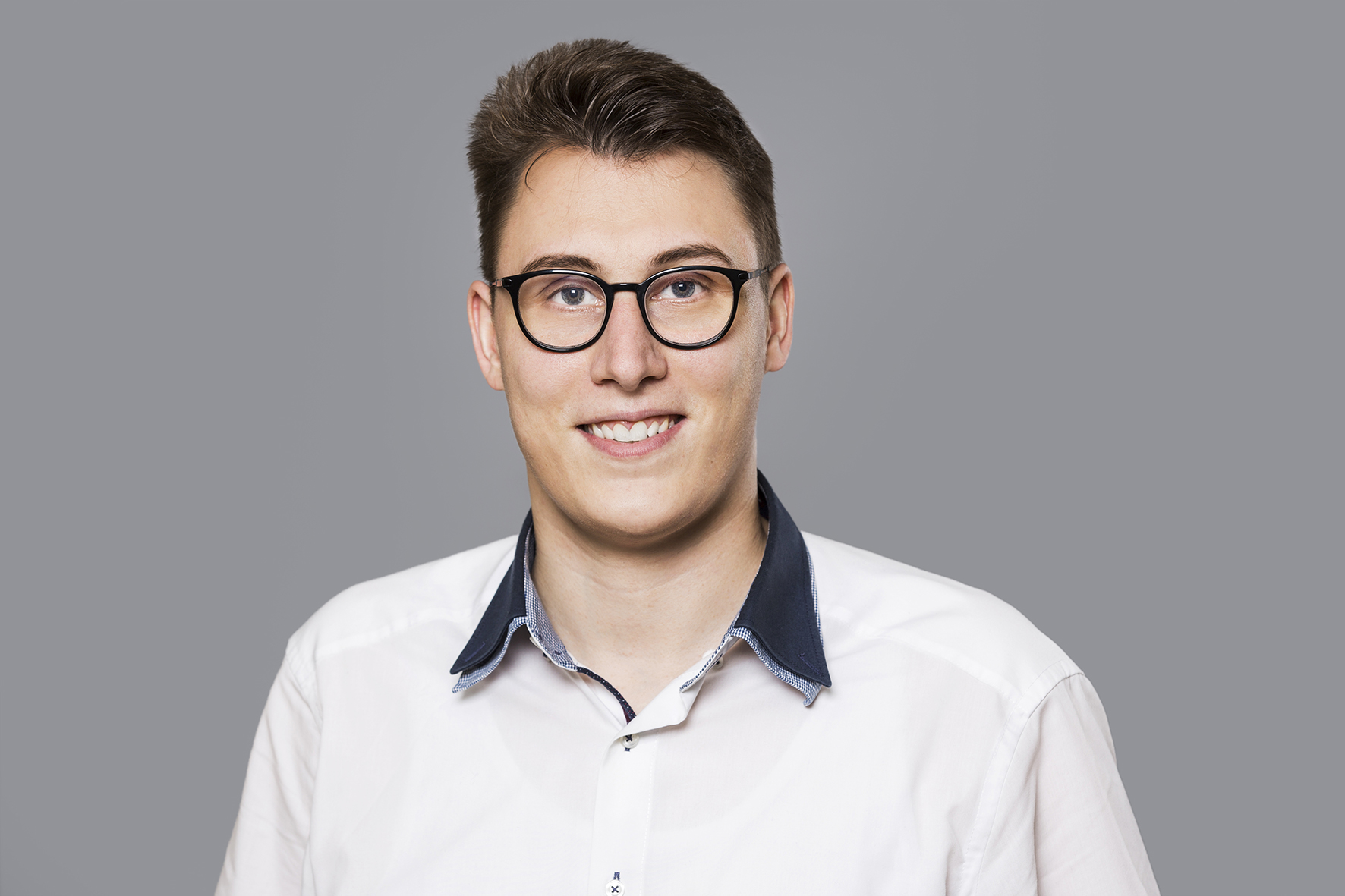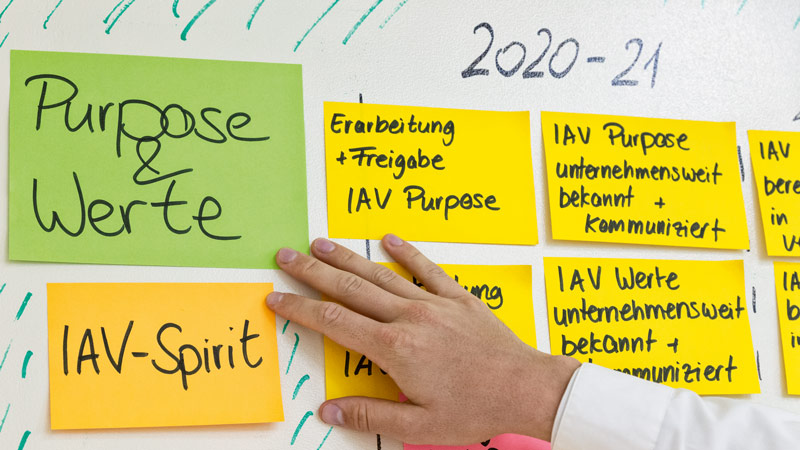WonderVision brings blind people to their destination safely
15.09.2022 —
How does one, as a blind person, find the right platform at Berlin Central Station? In Germany alone, there are more than 70,000 blind people and even more with severe visual impairment. At IAV, a young and innovative engineering team is working on a smart solution that can be of valuable help not only at the central railway station.

As a blind person, what does one perceive in busy places, such as a central station or an airport? Lots of noises, a wide variety of smells, occasionally one is bumped into, the condition of the floor changes, suddenly one stands in front of a staircase, while one hears the masses pushing past you.
The fact is that as a person without severe visual impairment, it is at best possible to guess how these situations must feel. “This is why we have had intensive conversations with people with visual impairments during the development of our solution. To provide a useful tool, we need to understand the challenges that await such people in busy places,” says Pascal Behr, team manager for Voice Control & Voice Assistants at IAV.
Technology from automotive development as a basis
For “WonderVision”, the engineering team uses language and image recognition technologies developed and tested at IAV in the automotive context. “WonderVision” can be easily integrated as a function into the apps of, for example, public transport providers, airlines or even licensees of large event locations. “Using a voice command, the user can forward a destination to the smartphone, such as taking me to platform 10,” explains Behr. “The mobile phone then uses a camera to sense the environment, detect potential obstacles such as stairs, can read signs and send acoustic directions, for example: Go straight ahead for ten steps, then go left.”

A lot of approval at the Future Mobility Summit
In September, WonderVision was one of a total of 18 pitches presented at the Future Mobility Summit in Berlin. The project received a great deal of support and in the last second came in second place in a thrilling spectator voting. “For us, this is nice feedback. There are still some challenges to be overcome on the way to a more inclusive society. WonderVision can help people with vision impairments to be safer and more self-confident in public areas,” Behr concludes.

WonderVision is currently being further optimized in cooperation with several beta testers in the direction of series production.



